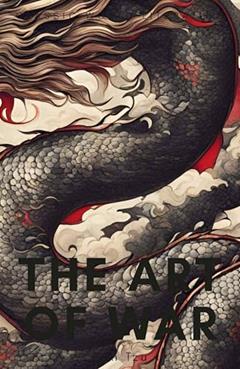Summary of The Art of War/The Book Of Lord Shang, by Sun-tzu and Shang Yang
Unlock the ancient wisdom of Sun-tzu's 'The Art of War' and Shang Yang's 'The Book of Lord Shang'. Explore strategies for success and governance!
Sunday, September 28, 2025

Ah, The Art of War! A book so revered, it makes even the most intense episodes of Game of Thrones look like a children's tea party. Written by the ever-mysterious Sun-tzu, this ancient Chinese treatise on military strategy is basically the original "how to win friends and influence enemies" manual, long before Dale Carnegie perfected it. And then we have The Book of Lord Shang, by Shang Yang, which is like the elder, grumpier brother of Sun-tzu's brilliant work. Together, they form a power couple of ancient wisdom-an exquisite pairing like fine wine and cheese, but with more battlefields and fewer charcuterie boards.
Let's dive into the treasure troves of wisdom from these old legends, shall we?
The Art of War opens up with a bang, or should I say, with a warning: "Know your enemy and know yourself and you can fight a hundred battles without disaster." Basically, if you don't know which way your troops are facing or who's trying to stab you in the back, you might be in for a bad day at the office. Sun-tzu goes on to share nifty little tricks-it's like he's giving you cheat codes for real-life combat. His key principles include deception (because what's a battle without a little sneaky sneak?), strategy (like a game of chess, but with swords), and the importance of terrain (because nobody likes getting caught in mud during a duel).
In simpler terms, Sun-tzu is saying: Plan ahead, don't rush into things, and for goodness' sake, listen to your advisors! Spoiler alert: usually, the side that listens tends to win.
Now, pivoting to The Book of Lord Shang, this work takes a bit of a different spin. Shang Yang, wielding governance like a battle axe, emphasizes legalism and authoritarianism like no other. His philosophy? Laws should be strict, and people must be terrified to break them. It's kind of a "do as I say or be executed" vibe. He argues that a strong state needs strong laws and, let's be real, maybe a little less debate and a lot more hustle. Forget about sunshine and rainbows; Shang's world is about efficiency and order.
In a nutshell, while Sun-tzu is focused on winning the war, Shang Yang is busy determining how to rule the battlefield of governance. Both approved of cunning strategies that send shivers down your spine and may even entice you to create a battle plan of your own for crossing the street-or at the very least, for taking over the world.
So, what's the takeaway? Whether you're leading armies or just trying to survive the office politics, these ancient texts provide you with tools-both for battlefield tactics and cutting down dissent at the water cooler. Overall, this combo book is not just worthy of a read; it's perfect for anyone wanting to sprinkle a bit of ancient wisdom over their modern trials and tribulations.
Remember, The Art of War isn't just about warfare-it's about strategy in all forms. Meanwhile, The Book of Lord Shang invites us to ponder the nature of laws and governance, all while keeping us questioning if we can really rule our lives without a personal army (or an iron fist). Because, let's be real, some battles are best fought with a well-placed email or a strategically timed coffee break.
Maddie Page
Classics, bestsellers, and guilty pleasures-none are safe from my sarcastic recaps. I turn heavy reads into lighthearted summaries you can actually enjoy. Warning: may cause random outbursts of laughter while pretending to study literature.